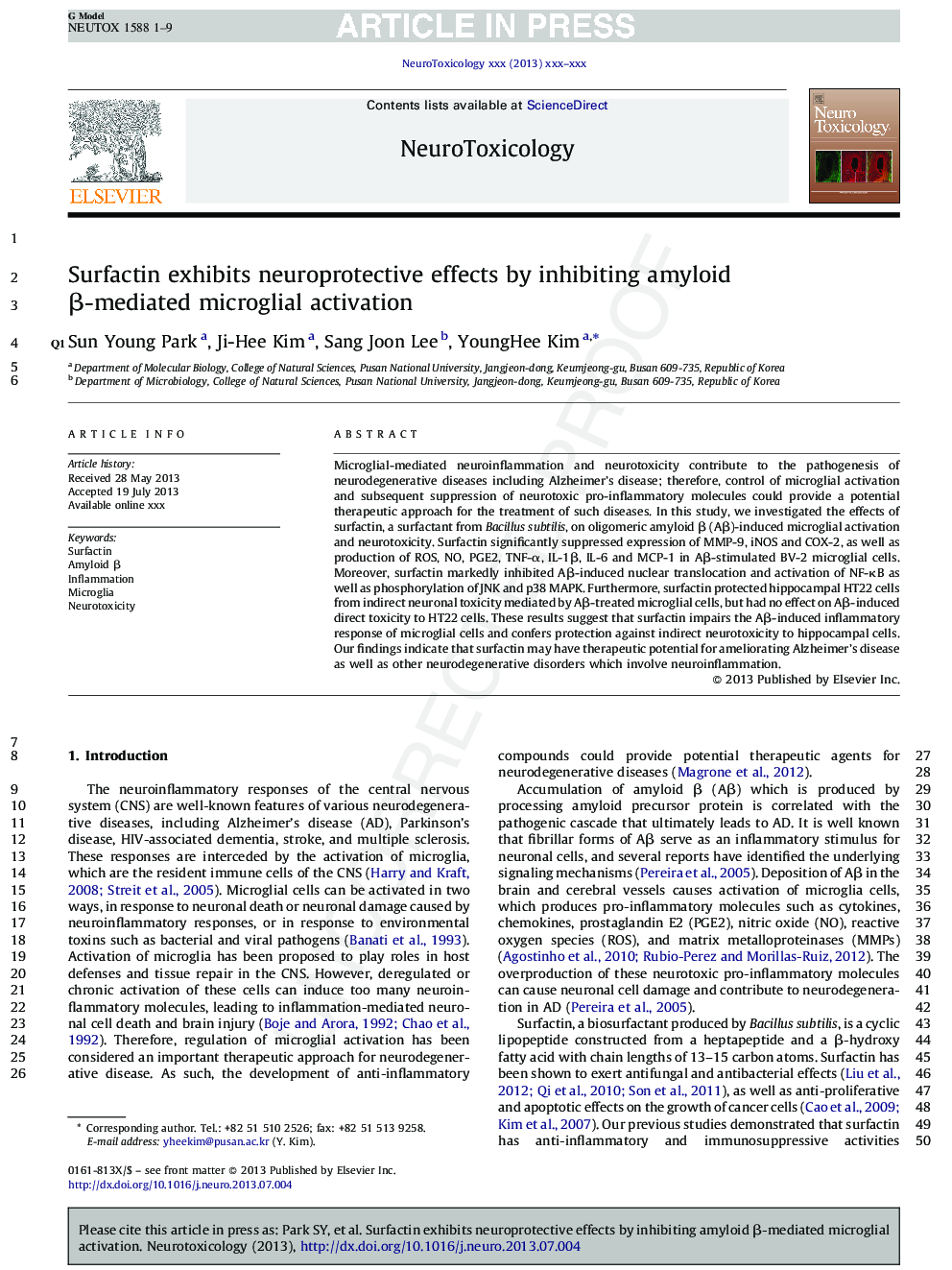| Article ID | Journal | Published Year | Pages | File Type |
|---|---|---|---|---|
| 5855023 | NeuroToxicology | 2013 | 9 Pages |
Abstract
Microglial-mediated neuroinflammation and neurotoxicity contribute to the pathogenesis of neurodegenerative diseases including Alzheimer's disease; therefore, control of microglial activation and subsequent suppression of neurotoxic pro-inflammatory molecules could provide a potential therapeutic approach for the treatment of such diseases. In this study, we investigated the effects of surfactin, a surfactant from Bacillus subtilis, on oligomeric amyloid β (Aβ)-induced microglial activation and neurotoxicity. Surfactin significantly suppressed expression of MMP-9, iNOS and COX-2, as well as production of ROS, NO, PGE2, TNF-α, IL-1β, IL-6 and MCP-1 in Aβ-stimulated BV-2 microglial cells. Moreover, surfactin markedly inhibited Aβ-induced nuclear translocation and activation of NF-κB as well as phosphorylation of JNK and p38 MAPK. Furthermore, surfactin protected hippocampal HT22 cells from indirect neuronal toxicity mediated by Aβ-treated microglial cells, but had no effect on Aβ-induced direct toxicity to HT22 cells. These results suggest that surfactin impairs the Aβ-induced inflammatory response of microglial cells and confers protection against indirect neurotoxicity to hippocampal cells. Our findings indicate that surfactin may have therapeutic potential for ameliorating Alzheimer's disease as well as other neurodegenerative disorders which involve neuroinflammation.
Related Topics
Life Sciences
Environmental Science
Health, Toxicology and Mutagenesis
Authors
Sun Young Park, Ji-Hee Kim, Sang Joon Lee, YoungHee Kim,
